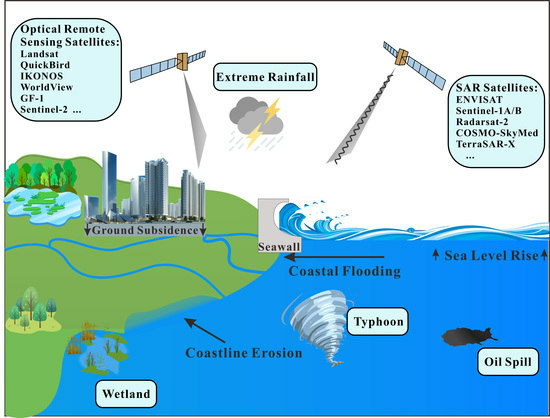With major contracts in Brazil, Italian-Argentine steel pipe and equipment manufacturer Tenaris is investing some US$14mn in its local production capacity.
In addition to large Petrobras offshore oil and gas projects, such as the Búzios field, the company sees good prospects for new business with private sector players, also in the onshore segment.
“There are a number of private companies working on the revitalization of the fields, generating demand for hose and pump rods, among other goods, to increase the production of these assets,” says the president of Tenaris and Brazil, Renato Catallini, BNamericas.
In this interview, Catallini comments on the projects under development, market demands, technological challenges and initiatives related to the energy transition.
BNamericas: In July, Tenaris closed a major contract with Petrobras to supply equipment for the Búzios field, in the pre-salt of the Santos Basin. What is the importance and status of this project?
Catallini: The contract is for the supply of seamless and welded pipe casings. We manufacture the welding pipes in Brazil. The seamless ones come from factories in Mexico and Italy. Our plants work in a network. The Brazilian unit specializes in connectors that are large diameter, high thickness casing, and high specification cables.
The Brazilian market demands a combination of very diverse and high-tech products, and some are imported.
About Búzios, this is the third contract we have signed with Petrobras for the pre-salt fields. We started with Mero 3, then we closed a deal for production sharing fields. Then we won packages for Mero 4 and a global contract.
Búzios is the most relevant in terms of volume, more than 100,000t of pipes. The other contracts total around 30,000t. Búzios is one of the most important fields of Petrobras, with very high productivity. It is a pre-salt star. So, for us, to be trusted by Petrobras to deliver it is a very important achievement.
In addition, we supply ExxonMobil in Guyana via Brazil and other plants in the world, with larger diameter plugs. Today, the plant exports to Brazil about 65% of its production.
BNamericas: The pre-salt fields have high CO2 content. How is Tenaris working to meet this challenge?
Catallini: The products we supply to Petrobras are corrosion resistant. It is the most sophisticated portfolio we have. These are pipes that, in addition to high collapse pressure, have to withstand very severe corrosion conditions, as the projects are in water depths of over 2,000m. They are premium compounds to withstand very demanding conditions.
BNamericas: What contracts and projects are underway with private oil companies?
Catallini: We supply cassette tubes to Equinor in the cod [field], as well as lines for risers and flowlines with thermal coating produced in our factory in Pindamonhangaba [in São Paulo state]. We have also supplied ExxonMobil, TotalEnergies, Shell, PetroRio, Petronas. Practically all the operators in the country, including onshore.
BNamericas: Did Petrobras’ onshore sales heat up the market?
Catallini: This really generates demand, with the reactivation of the onshore fields. In addition to the case of Eneva, which produces “gas to power”, there are a number of private companies working on the revitalization of the fields, generating the demand for pipes and pumping rods, among other goods, for the production of these To increase wealth. There are already plans to build new wells, for example generating orders for well tanks.
The outlook is very positive for onshore and offshore.
BNamericas: What are the most anticipated bids and tenders?
Catallini: The offers happen practically continuously. For example, there are many processes for the development of the Búzios field, with risers and flowlines, for Gato do Mato, cod, etc. And this is the strongest sign of increasing activity. Years ago there was a big trial, and then we would go for a long time without offers. We recently won a contract with Petronas for exploration in Brazil. And there are already other processes that come from private companies.
BNamericas: What is the trend in terms of subsea configurations, considering the flexible riser incidents that have occurred in Petrobras projects?
Catallini: For many years, Petrobras has opted for a development that is fundamentally based on flexible pipes, mainly for the collection and flow system. This was not a common strategy in the rest of the world. Other oil companies have used hybrid systems [combining flexible and rigid pipelines]. After the incidents in the pre-salt, Petrobras changed to a more traditional strategy applied for Mero, Sépia and Búzios, combining rigid with flexible, which is the most efficient combination for field development. Technology continues to evolve. We supply rigid carbon steel pipes, which are later internally coated with a corrosion-resistant alloy line, the MLP [mechanically lined pipe]. These pipes have arrived from Germany, and we are doing the thermal coating to deliver them to the Buzios and Bacalhau fields. Each EPC company then defines the best solution in each case.
BNamericas: Is Tenaris investing in production capacity and human resources in Brazil?
Catallini: We are investing 70mn reais [US$13.6mn] to increase capacity or produce different products, such as the ‘dopeless’, which is the Tenaris technology for threads without grease, with two important advantages: environmental, because it Water reduces contamination, and safety, because not having fat allows a reduction in the number of people on the platform.
And we have two other technologies that we supply to Petrobras: plugs with automatic keys, and the ‘pipe tracer’, which provides electronic information about the pipes.
We are investing in these technologies and expanding the production capacity of welded connectors in the country. And we have just completed an investment of 23mn reais in automatic ultrasonic equipment, necessary to produce export lines according to a new DNV standard. We are starting a project for Qatar Gas with 200,000t pipes produced in Brazil. Without this equipment we will not be able to comply with the required standards. And it will be important for future contracts in Brazil.
The last major investment we have completed is the thermal coating which is mainly used in riser lines and power lines for the flow of pre-salt oil.
Meanwhile, we expect to increase our local staff by 15% in the next six months.
BNamericas: How is the company positioning itself in the energy transition?
Catallini: We have a very ambitious plan to reduce emissions. Tenaris today produces 1.2t CO2 per ton of steel produced, compared to the industry average of 1.89t CO2 per ton of steel. We use electric furnaces, which generate less CO2 than blast furnaces, and thanks to the extensive use of recycled scrap.
We plan to reduce CO2 generation by 30% more by 2030 compared to 2018. And we implement hydrogen in our processes.
In Italy, we want to achieve zero emissions with green hydrogen in our production system. We are evaluating and planning investments to capture CO2 and are investing US$190mn to build a wind farm in Argentina to clean up our electricity matrix.
BNamericas: Is the plant in Pindamonhangaba in the free [non-regulated] electricity market? Is self-production of energy a possibility for this?
Catallini: The CO2 generation of our plant is very low, because we do not produce steel here. Nevertheless, we are working to be able to buy more renewable energies. In the case of gas, we do not consume enough to be a free consumer, but in the case of electricity, yes. Our steel in Brazil comes from Usiminas and Gerdau, and that’s where we work. The big companies are all looking at the energy transition because it is an obligation, practically. Our main shareholder is also a shareholder of Ternium, in Santa Cruz [in Rio de Janeiro]. And they make alternative plans to reduce CO2 emissions and increase the consumption of alternative energies, such as biogas, among others.



